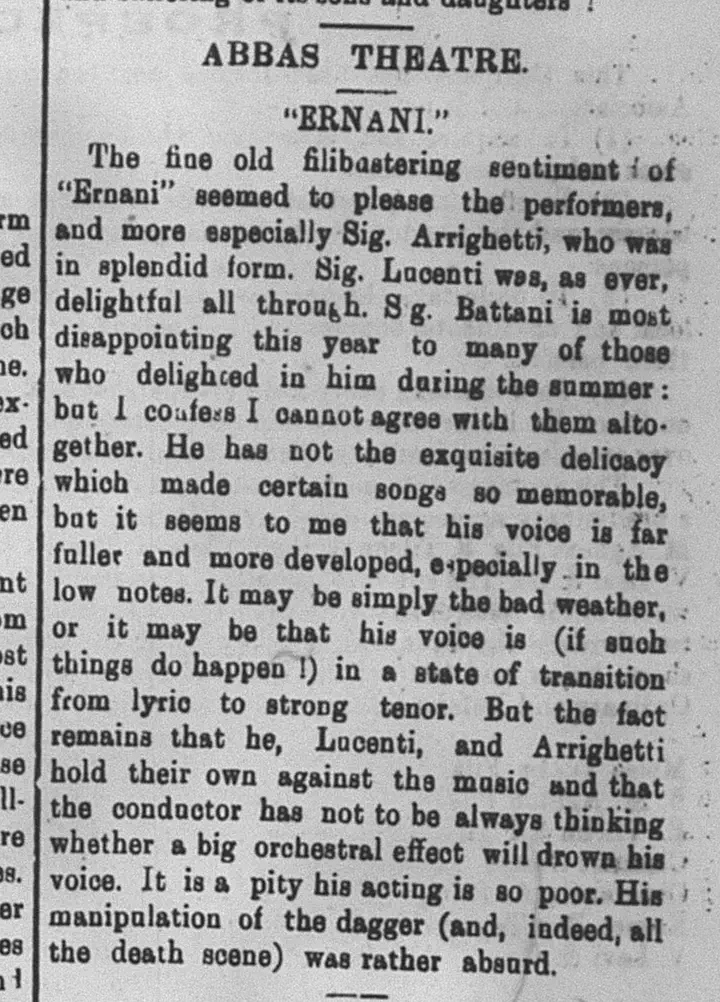An Actor's Nightmare
 1907-02-18
1907-02-18As an actress myself, I understand the stress and nervousness that surrounds receiving a good review of your work. If the critics don’t like me, will the show keep running? Will I lose my job? How can I ever become a star if I have a single, bad review? Unfortunately, for performer Sig. Battani of Ernani at the Abbas Theatre, these questions may soon become a reality. This dream-crushing review becomes a reality on the third page on the Monday issue of February 18, 1907. At first, a reader may think that the critic is praising the actors for their work, as he says that “The fine old filibustering sentiment of “Ernani” seemed to please the performers, and more especially Sig. Arrighetti, who was in splendid form. Sig. Lucenti was, as ever, delightful all through.” For those actors, the fear of receiving a career-crushing review has still not come to fruition, yet.
However, the review takes a turn for the worst as the critic states that “Sig. Battani is most disappointing this year to those who delighted in him during the summer.” The critic tries to lessen the blow to Sig. Battani’s self-esteem by saying that the performance may not have been as bad as the audience thought; perhaps he was sick from the weather or that his voice was changing from a lyric to strong tenor. This might be because of Sig. Battani’s reputation. Since at least May of 1905, when he was first mentioned in our portion of the Egyptian Gazette, he has received tremendous reviews. One critic even called him “the best tenor Cairo has had for years.” Unfortunately, the critic for Ernani was not so complementary, as he did not hold back when he said, “It is a pity his acting is so poor. His manipulation of the dagger (and, indeed, all the death scene) was rather absurd.” Though showing the death of a character on stage is a challenging task, unfortunately for Sig. Battani, a death scene with a dagger cannot be falsified or exaggerated if it is to be believable for the audience. As the star of the Abbas Theatre for many years, it is intriguing why his performance quality so suddenly dropped. Perhaps Sig. Battani could have redeemed himself by having more believable acting or a stronger voice throughout the rest of the performance. Alas, this is not the case. For the amount of time that Sig. Battani most likely put into developing this role and his previous theatrical successes, this review is quite a shame. Let’s hope that Sig. Battani’s future is not destroyed because of this one performance; otherwise, he will have stabbed his himself and his career in the back with his own dagger.